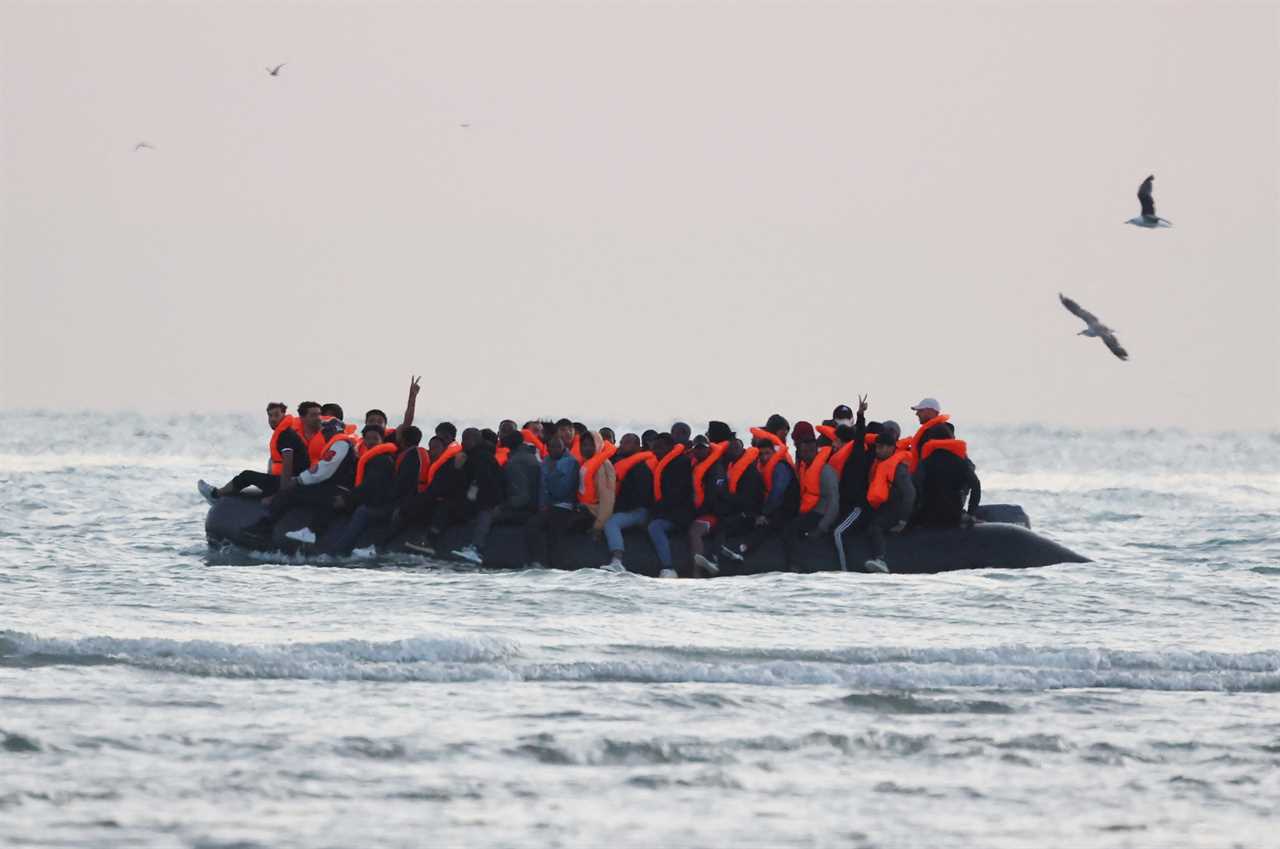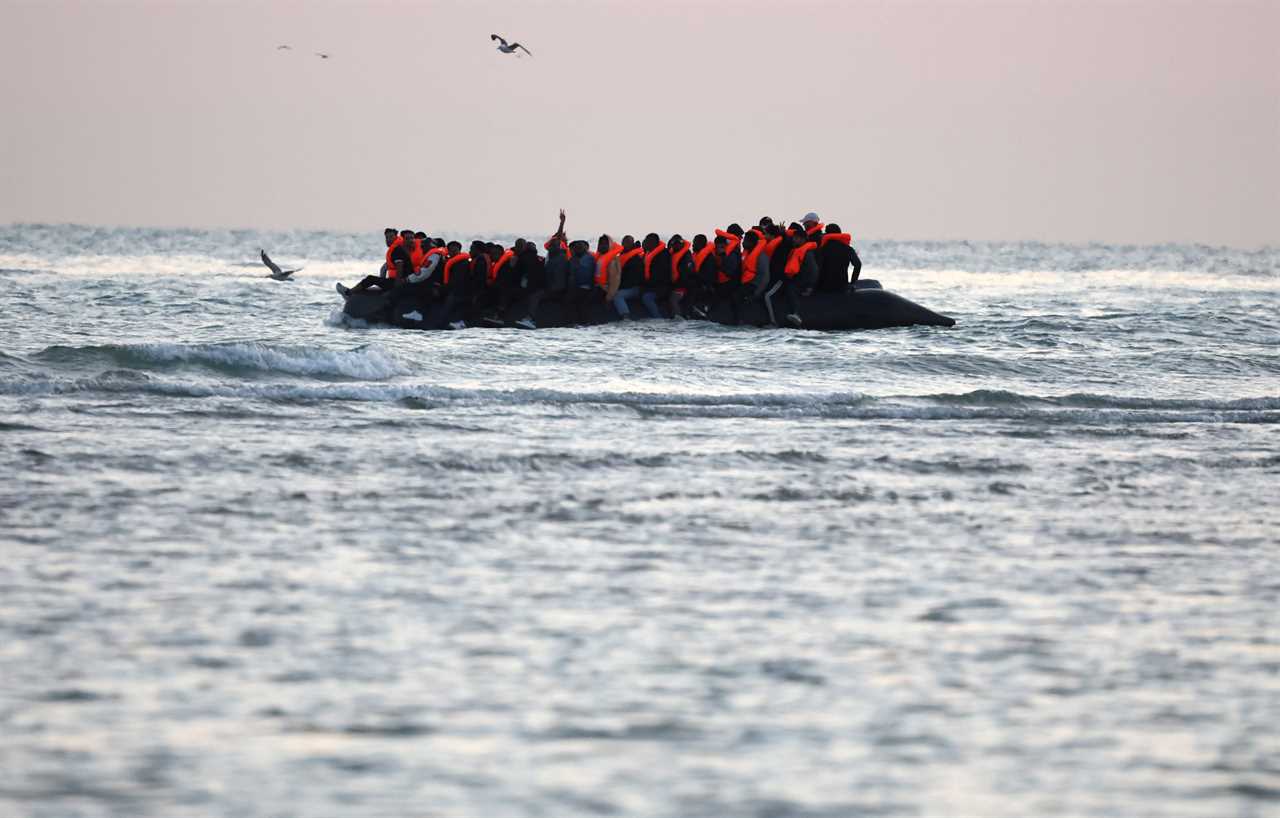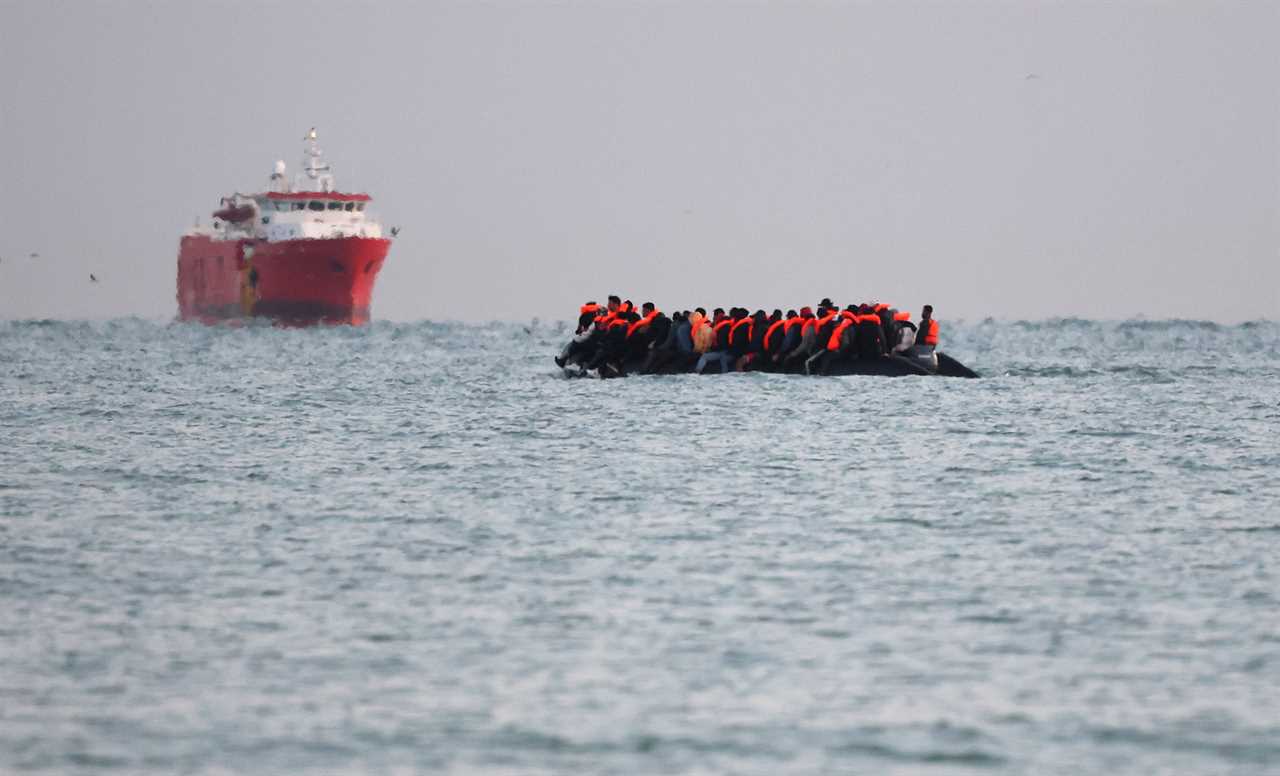
Against the backdrop of migrants waving from a packed dinghy en route to UK shores, the impending UK-France summit in Downing Street underscores the intricacies of the small boats crisis.
Analysis of Shared Challenges
The stark images of individuals crammed into inflatable dinghies navigating the Channel serve as a poignant reminder of the ongoing migration challenges facing both countries. As Sir Keir Starmer and President Emmanuel Macron convene to negotiate a new "one in, one out" migrant agreement, the complexities and shared responsibilities of managing this crisis come to the fore.
Ahead of the crucial meeting, Prime Minister Boris Johnson's emphasis on establishing a "new deterrent" following the cancellation of the Rwanda deportation scheme reflects the evolving dynamics of UK migration policy. Defence Secretary John Healey's acknowledgment of the issue as a "shared challenge" highlights the collaborative efforts needed to address the root causes of irregular migration.
The Wider Context: Border Control and Humanitarian Concerns
The proposed terms of the deal, involving the return of around 50 migrants to France annually, signal a shift towards a more controlled approach to migration management. However, with over 44,000 arrivals since the last election, the scale of the challenge necessitates a nuanced and comprehensive response beyond mere numbers.

While the focus on disrupting people smuggling networks is crucial, the human dimension of asylum seekers with legitimate claims and family ties underscores the delicate balance between border control measures and humanitarian considerations. The intricacies of balancing security concerns with compassion and international obligations lie at the heart of the UK-France discussions.
Navigating Legal and Ethical Waters
Amidst the negotiations over the operational details of the agreement, questions of legal frameworks, human rights implications, and ethical responsibilities loom large. The potential implications of a "one in, one out" deal on asylum seekers' rights, access to protection, and the broader European migration landscape demand a comprehensive evaluation of the pact's long-term effects.
As the UK seeks to strengthen its borders and deter irregular migration, the need for sustainable solutions that address the root causes of displacement and provide safe pathways for those in need of protection remains a pressing concern. Balancing national security imperatives with international legal obligations requires a nuanced and principled approach from both the UK and France.
Conclusion: Towards a Comprehensive Migration Strategy
As the UK and France navigate the complexities of migration governance in the 21st century, the "one in, one out" deal represents a pivotal moment in shaping the future of cross-border cooperation. By critically examining the underlying drivers of irregular migration, respecting human rights norms, and fostering collaboration on a global scale, both nations can work towards a more inclusive and sustainable approach to managing migration challenges.







